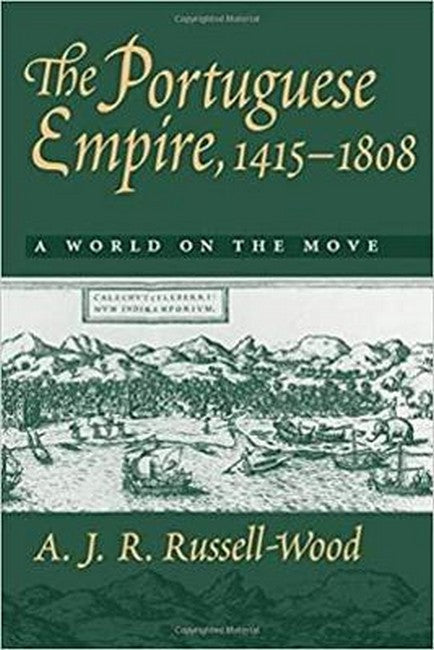''[Russell-Wood] enumerates Portuguese contributions to other peoples' pasts and presents, especially in the contexts of the 'ebb and flow of commodities,' the 'dissemination of flora and fauna' and the 'transmission of styles, theories and ideas.' The original feature is the author's concentration on people and transport as vectors of cultural exchange . . . He evokes a lively picture of the highly mobile merchants, missionaries and administrators who hurried back and forth across oceans and continents to keep the enterprise going.''--Times Literary Supplement This is the story of the first and one of the greatest colonial empires: its birth, apotheosis, and decline. By approaching the history of the Portuguese empire thematically, A. J. R. Russell-Wood is able to pursue ideas and make connections that previously have been constrained by strict chronological approaches. Using the study of movement as a focus, Russell-Wood gains unique insight into the diversity, breadth, and balance between the competing interests and priorities that characterized the Portuguese culture and its expansion spanning four centuries' events on four different continents. ''A. J. R. Russell-Wood realized that human and geographical factors contributed much to Portuguese success. Some practices were responses to the colonial experience itself. He therefore culled this historical literature, largely modern works in English including his own, to explore a rich variety of aspects of the Portuguese colonial empire . . . If geography is defined as mankind's relationship with its planet, this book is the essence of historical geography. Informative and entertaining, it is important for its new approach and insights, and because it confirms the amazing global perspective of Portugal's colonial rulers.''--Journal of Historical Geography ''This is a book where every page bears witness to the author's fascination with the Portuguese colonial world and his deep love of his subject. It is the kind of book which results from a scholar's decision to open to the world the files he has accumulated in a lifetime's reading. As a result it is a sort of encyclopaedia of strange and recondite information, colourful detail, anecdotes and quotations. It is certainly a book that any student of Portuguese colonial activity would want to read and, indeed, to own.''--Mariner's Mirror

